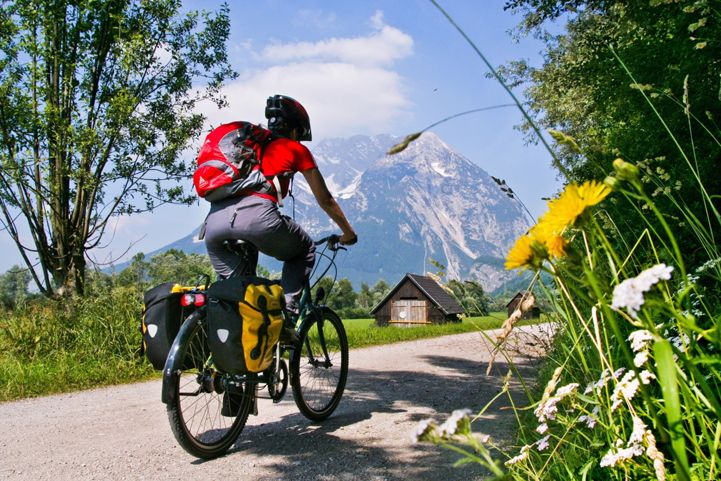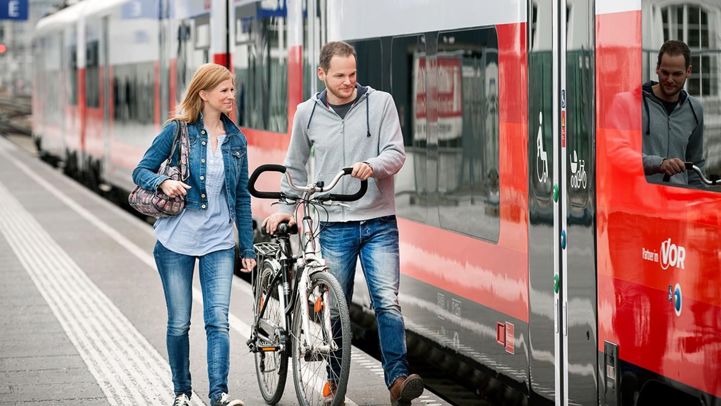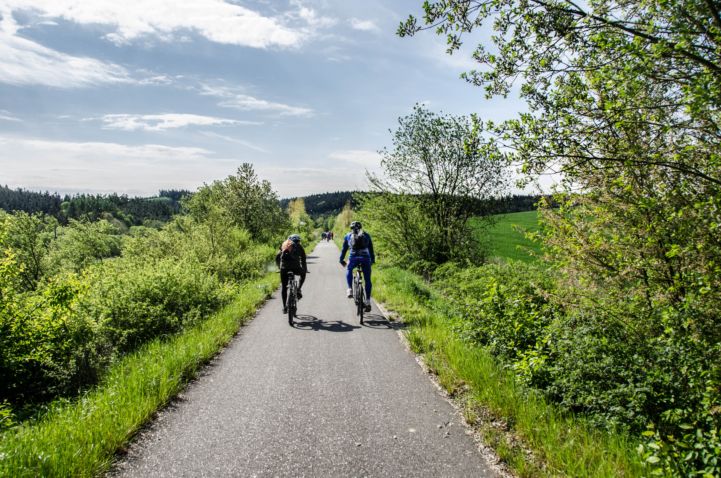EuroVelo and cycling tourism: key elements to “rethink tourism” and achieve its sustainable transition
How can EuroVelo and cycling tourism contribute to upgrade the tourism sector? On World Tourism Day, ECF shares five key actions to grow cycling tourism.
1) Integrate cycling tourism and EuroVelo in all relevant policies and strategies
Cycling tourism is a concrete and ready-to-use solution to tackle the challenges of the tourism sector. But to fully bring its benefits, it needs to be supported at all scales. The Transition Pathway for Tourism released by the European Commission in February 2022 includes Sustainable Mobility as one of its main topics but it does not refer explicitly to cycling tourism and EuroVelo as tools to reach its goals. ECF is advocating for a better integration of cycling tourism and EuroVelo, the European cycle route network, in this framework. That is also why UNWTO and ECF joined forces to promote active, sustainable and green travel in 2021.
Cycling tourism and EuroVelo should also be increasingly included in national, regional and local strategies, both for sustainable mobility and tourism. For example, the brand new French National Plan on Cycling aims to make France the first cycling tourism destination in the world.

2) Implement seamless and comfortable cycling infrastructure for tourists and daily commuters
64% out of the 90,000km of the EuroVelo network were ready to be used in 2021. It means that there is still a long way to go to achieve 100%, as well as its connections to national and regional cycle networks. Nevertheless, we have noticed a sharp acceleration in recent years, thanks to the support of many stakeholders all around Europe. The general momentum must continue and needs financial support!
ECF seeks to make EuroVelo, the European cycle route network, part of the European flagship policy on Transport: the Trans-European Transport Network (TEN-T). This network includes roads, railway lines, inland waterways, ports, maritime shipping routes, airports and railroad terminals, but cycling infrastructure is missing so far. While its Guidelines are being revised by the European institutions, ECF advocates for a better integration of EuroVelo and cycling.
In order to improve the overall quality of the network, ECF set up the EuroVelo Certification Standard with a list of criteria to be fulfilled in order to have high quality infrastructure and services along long-distance cycle routes. Consistent and coherent route signage is also needed, respecting national standards while integrating EuroVelo signs.
3) Develop multimodality and new cycling friendly services
Cycling tourism needs to be supported by a range of services such as parking facilities, multimodality options (facilitate combination of cycling with public transport), adapted services in hotels and restaurants, bike rental offers, etc. Most of those services rely on Small and Medium Enterprises for which investments may be difficult to consider. That is why this should be encouraged by public subsidies. Moreover, existing cycling-friendly services should be made visible through dedicated schemes.

4) Marketing and promotion of EuroVelo and cycling tourism
Even if they are becoming more and more popular, many tourists would probably need to be convinced to give cycling holidays a try. Promotion campaigns for #MoreCyclingTourism and to make EuroVelo known are needed in that sense. Encouraging people to go on cycling holidays also supposes to improve the access to updated information and planning of such trips. From the destination’s choice to overnight bookings, digital solutions are necessary to support the development of EuroVelo and cycling tourism. But that is not always the case. Innovative activities in marketing and promotion of cycling tourism are also important to make it more mainstream.
5) Support the development of cycling tourism and a better knowledge of the sector
The positive impact of cycling tourism on the local economy, environment, health, job creation is easy to understand but difficult to quantify. ECF has been developing data on the sector to measure its growth and value in recent years, but an update of the European study on EuroVelo and Cycling Tourism from 2012 is much needed to have a better outlook. In addition, cycling tourism and EuroVelo need the support of decisionmakers and financial resources to fully realise its potential.

Even after World Tourism Day, ECF will continue to advocate for EuroVelo and cycling tourism, starting with our next event: celebrating the 25 Years of EuroVelo online, 21 November from 14:30 to 16:30 CET. Save the date and see you there!
Author: Agathe Daudibon
Cover picture's credits: Wallonie Belgique Tourisme, photo taken along EuroVelo 19 - Meuse Cycle Route, in Namur, Belgium''